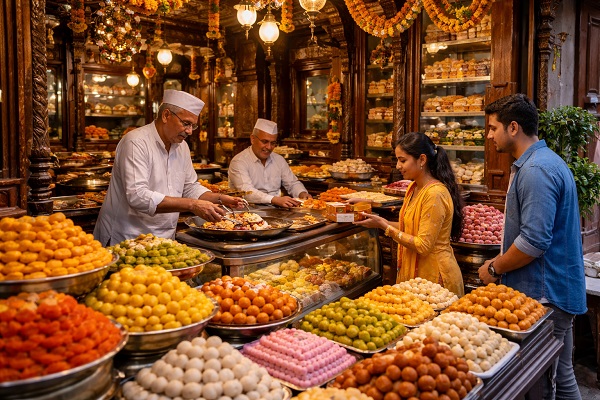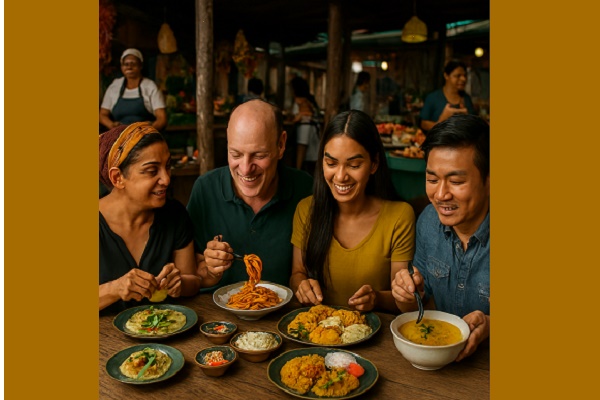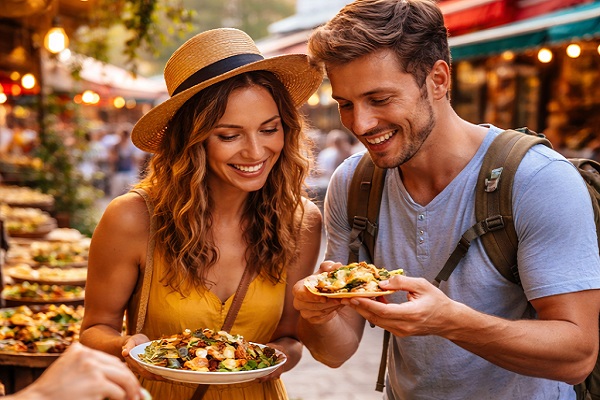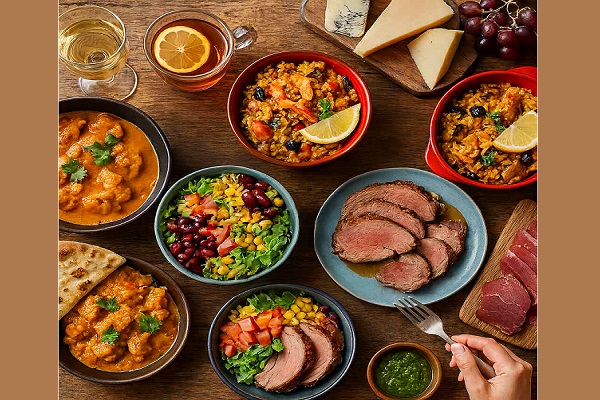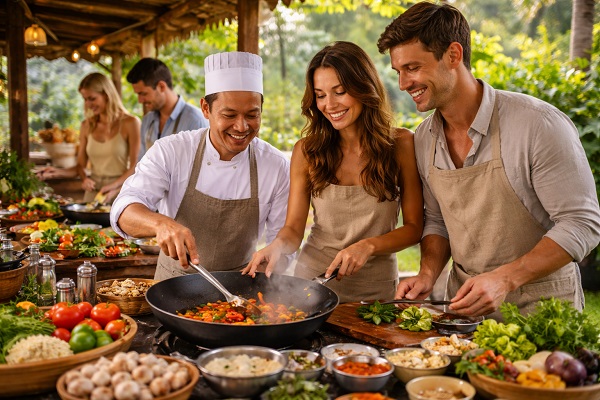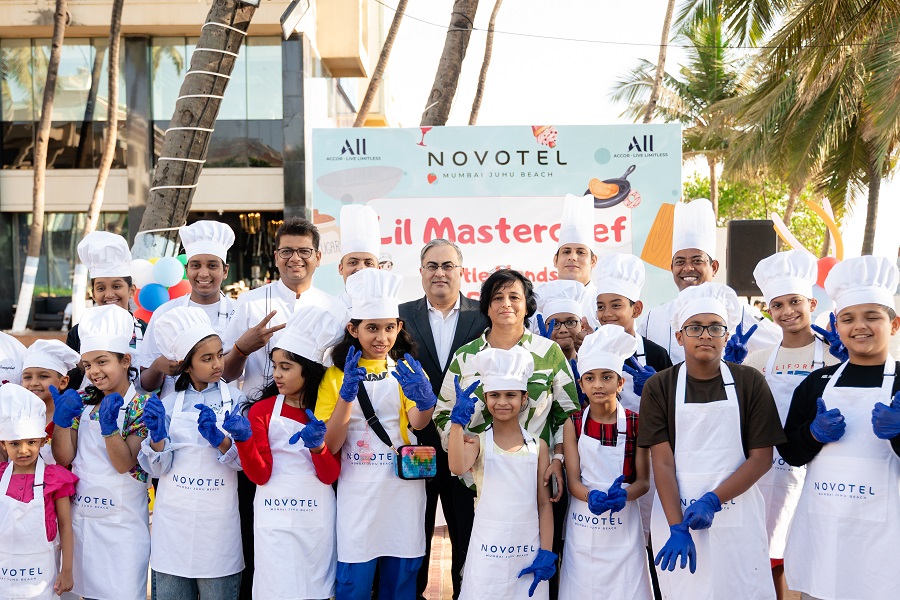Food and Beverage Tourism Booms in 2025 as Travelers Crave Culinary Journeys
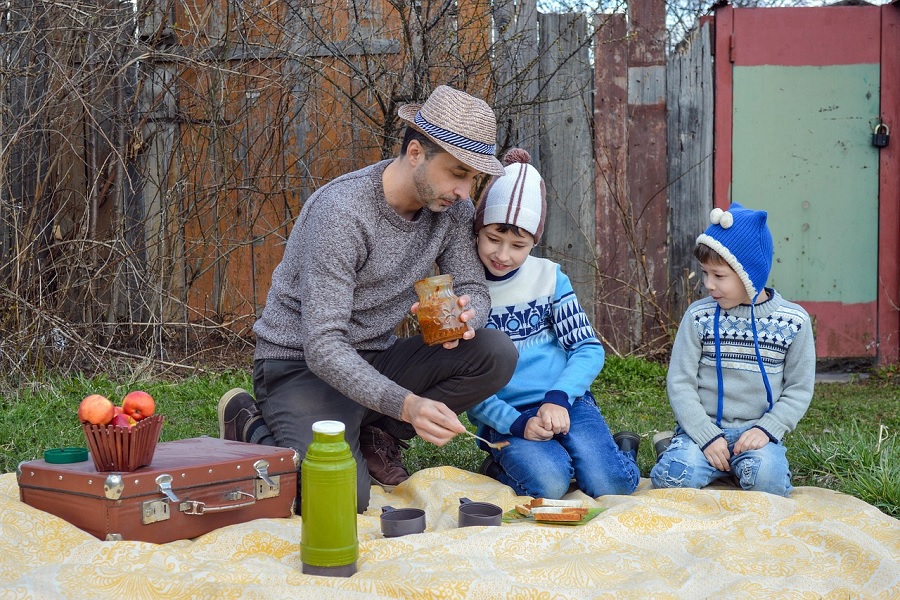
A Taste-Led Travel Revolution
According to the World Food Travel Association, food and beverage tourism is one of the fastest-growing segments of international travel, contributing over $1.3 trillion globally in 2025. More than 80% of travelers now consider food a major factor when choosing their destination.
“Food is the most powerful cultural connector,” says Ritu Sharma, a culinary travel curator based in Delhi. “It tells stories, preserves traditions, and gives travelers a genuine taste of local life.”
Hotspots of Culinary Tourism
India: Cities like Delhi, Lucknow, Kolkata, and Chennai are promoting curated food walks, spice market tours, and traditional cooking classes. Goa is drawing global gourmands with its Indo-Portuguese coastal cuisine.
Japan: Tokyo and Osaka continue to attract food lovers for sushi, ramen, and Michelin-starred street eats. Farm-to-table experiences in Hokkaido and Sake brewery tours are gaining traction.
Italy & France: Remain iconic for vineyard tours, cheese-making workshops, and regional tasting menus—from Provence to Piedmont.
Thailand & Vietnam: Famous for their vibrant street food, floating markets, and hands-on cooking experiences with local chefs.
Mexico & Peru: Latin America’s rising stars in food tourism, blending ancient techniques with global flavors.
Experiences Driving the Trend
Farm Visits & Agritourism: Travelers visit spice plantations, vineyards, and dairy farms to learn about food sources and sustainable practices.
Cooking Classes: Hosted by locals or chefs in their homes, these classes turn tourists into temporary residents of the region’s culinary culture.
Food Festivals: Global events like the Melbourne Food & Wine Festival, Madrid Fusión, and India’s National Street Food Festival are attracting food tourists year-round.
Beverage Trails: Wine, craft beer, coffee, and even tea trails are inviting connoisseurs to explore regional beverage culture with guided tastings.
Technology Enhancing the Culinary Experience
Digital platforms are playing a major role in enhancing food tourism. Smart food apps recommend local dishes, AR menus offer interactive stories behind meals, and QR-coded walking food trails are enabling real-time exploration. AI-powered translators help break the language barrier when ordering in unfamiliar places.
Virtual cooking classes, online reservation platforms for food tours, and immersive 360° previews of local food markets are also redefining culinary journeys.
Conscious Consumption
Modern culinary travelers are also eco-conscious and community-driven. They seek organic, seasonal, and locally sourced meals, while choosing to dine at community-run cafés, women-led enterprises, or zero-waste restaurants.

















